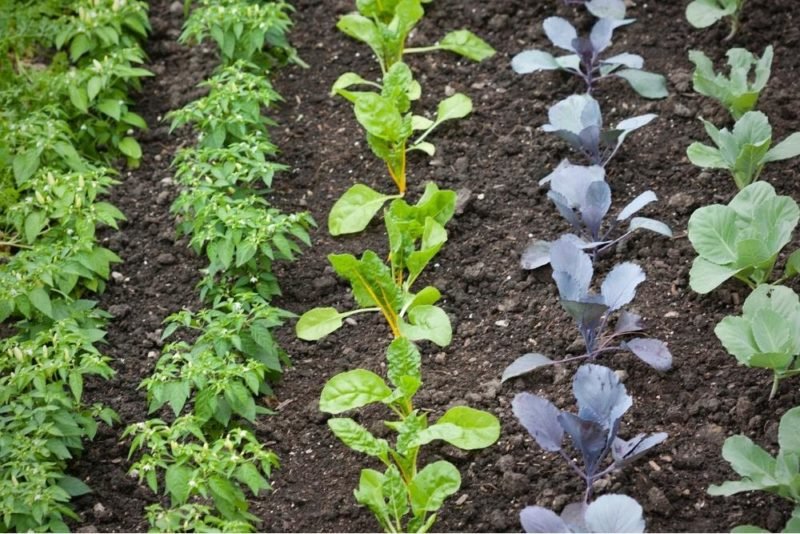
It’s June, and spring’s in full swing. Heck, it’s almost summer. It’s a fine time to be outdoors, and that’s a very good thing.
In this complicated world (even more so the past few years), nature may be one of the best antidotes to stress, and one of the best self-care tools at our disposal. Nature has a remarkable ability to pull us out of our heads (and all the thoughts and doubts and worries that might be stewing there) and into the present moment. That’s true whether you’re in your own backyard, in a park, on a hiking trail, or on a lakeside or beachside vacation.
Being in nature stimulates all our senses at once, which calms our mental chatter. If you’re noticing the breeze on your face and the sounds of birds or flowing water, you’re being mindful of the present moment, not replaying something that happened last week or trying to predict what might happen tomorrow. It’s a way of practicing mindfulness without practicing meditation.

Green spaces, health and well-being
Living in greener urban areas is associated with lower odds of developing a number of physical and mental health conditions. Some of this may be related to lower levels of air and noise pollution, some may be because urban areas with no green space tend to be areas where people have lower socioeconomic status (which carries its own health risks), but some is likely due to the stress-lowering effects of leafy green things.
Research has found that even a 15-minute walk in green spaces can reduce our stress response, slowing our heart rate and lowering the levels of stress hormones circulating in our system. A 2019 study found that spending at least two hours a week (120 minutes) in nature is associated with an increase in life satisfaction and feelings of well-being. The researchers found that the magnitude of the beneficial effects on health and well-being from spending at least 120 minutes in nature was as strong as having a higher-class job or meeting the recommended levels of physical activity.
Not all the people in the study lived in a green neighborhood, but those who got their nature exposure elsewhere didn’t venture more than a few miles from home, on average. I have a client who doesn’t live in a walkable urban neighborhood, so she decided that she would stop at a riverfront park on her way home from work to walk, or simply to sit on a park bench if she’s having a low-energy day.
Another 2019 study from the University of Washington reviewed evidence that that contact with nature is associated with increases in happiness, subjective well-being, positive affect, positive social interactions and a sense of meaning and purpose in life, as well as decreases in mental distress. They concluded that nature experience is a determinant of mental health.

Getting creative: nature photos and vegetable gardens
If you spend a lot of time sitting – at work or at home – where there’s no window with a view of nature, worry not. A 2015 study found that simply looking at nature images can be calming. I do have large windows in my home office, with views of my garden, trees and fields, but when I used to work in an office cubicle with zero view of the outdoors, I had a beautiful photo of a vibrant green forest tacked up above my computer and found that looking at it was very soothing. Good to know that research confirms my experience!
Because this summer I’m determined to not let the California ground squirrels mow down my tender young lettuces, carrots and beets, I take a few short breaks a day to visit my veggie patch and check on things. (If there’s a problem, better to identify it sooner rather than later.) Not only does this give me peace of mind, but I find that looking at all my beautiful little greens — whether ready-to-harvest lettuces or baby squash plants — is very revitalizing.

A shout-out for blue spaces
And it’s not just green space that’s good for well-being: blue spaces are also powerful de-stressers. Simply looking at water — crashing waves, flowing rivers, rippling lakes — relaxes our brains. And research has shown that having access to blue space can make us happier and more sociable. I don’t have a water view, but I plan vacations that put me by water. Lakeside campsites, weekends at the coast, short-term rentals near parks or rivers.
Immersing ourselves in water can also be healing. I once had a client in her 70s who had not been in a relationship in many decades. I knew she was a big fan of water exercise, but I was surprised when one day, after working together for months, she told me that the feel of water on the skin is one of the closest approximations to human touch. Skin hunger – or touch hunger – is the biological need for human touch. So something that approximates touch for people who don’t have regular physical contact with others? That’s powerful.
Even though this isn’t nature-related, per se, a 2020 study found that daily baths are linked to lower risk of heart disease and stroke. Now, the researchers theorized that the effects of mild heat exposure on the body are similar to those of exercise, or that bathing has simply been associated in previous research with a lower risk of high blood pressure. (Having high blood pressure increases the risk of both heart disease and stroke.) But could it also have something to do with the feel of water on the skin? So if you enjoy baths and are able to take them (i.e., you don’t have physical limitations or young children who give you no privacy), know that they aren’t self-indulgent, they’re good for you!

More food for thought (naturally)
I came across a very good article from the American Psychological Association, “Nurtured by nature,” that talks about the effects of nature on mental health and brain health. Totally worth a read. Also, if you like the idea of hiking but feel like it’s not for you because you’re “not in shape for it” or are in a larger body, I recommend the book “Fat Girls Hiking: An Inclusive Guide to Getting Outdoors at Any Size or Ability.” It’s very supportive and encouraging.
So how will you experience nature this summer? Can you make it a daily habit, such as in your garden, a leafy neighborhood or a nearby park, or will you plan for more extensive excursions? Or perhaps both?
This post contains Amazon Affiliate links. As an Amazon Associate I earn from qualifying purchases.
Disclaimer: All information provided here is of a general nature and is furnished only for educational purposes. This information is not to be taken as medical or other health advice pertaining to an individual’s specific health or medical condition. You agree that the use of this information is at your own risk.
Hi, I’m Carrie Dennett, MPH, RDN, a weight-inclusive registered dietitian, nutrition therapist and body image counselor. I offer compassionate, individualized care for adults of all ages, shapes, sizes and genders who want to break free from eating disorders, disordered eating or chronic dieting. If you need to learn how to manage IBS symptoms with food, or improve your nutrition and lifestyle habits to help manage a current health concern or simply support your overall health and well-being, I help people with that, too.
Need 1-on-1 help for your nutrition, eating, or body image concerns? Schedule a free 20-minute Discovery Call to talk about how I can help you and explore if we’re a good fit! I’m in-network with Regence BCBS, FirstChoice Health and Providence Health Plan, and can bill Blue Cross and/or Blue Shield insurances in many states. If I don’t take your insurance, I can help you seek reimbursement on your own. To learn more, explore my insurance and services areas page.
 Print This Post
Print This Post






